Definition
Essential amino acids (EAAs) make up a group of nine amino acids that cannot be produced inside the body (de novo) but must be ingested as dietary protein. The building blocks of proteins, amino acids are bound together to produce polymer chain or folded proteins with a huge array of functions. There are three groups of amino acids: essential, non-essential, and conditional.
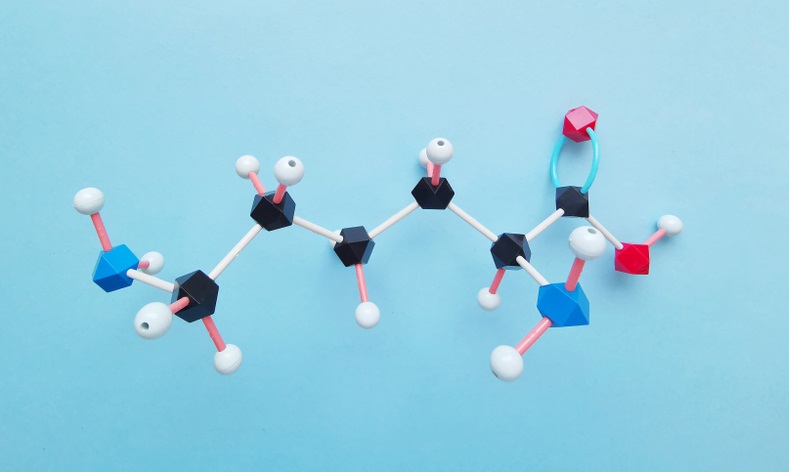
List of 9 Essential Acids
This list of 9 essential acids briefly describes the role of each within the human body.
Histidine
Histidine is an essential amino acid in children; however, this is not the case in adults unless kidney function is affected. Histidine is necessary for human growth. It is also important in maintaining the nervous system and is a metabolite of the neurotransmitter histamine. The most important role of histidine is to metabolize and regulate heavy metals including iron, copper, molybdenum, zinc, and manganese. A body low in histidine but high in trace metals quickly depletes any histidine stores, causing mineral-enzyme deficiencies.
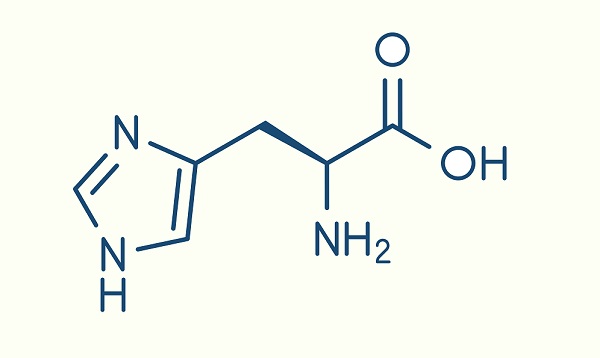
Isoleucine
Isoleucine is known for its use in supplements for endurance athletes. The three essential amino acids isoleucine, leucine, and valine constitute up to 70% of all human proteins. Isoleucine plays a role in tissue repair, hemoglobin synthesis, and regulating blood glucose and energy levels. Isoleucine can also be safely consumed in relatively large amounts making it a popular ingredient in sports supplements.
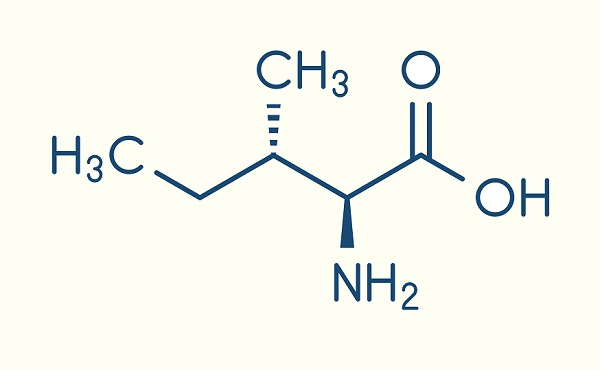
Leucine
Leucine is one of the three branch-chain amino acids. Leucine, isoleucine, and valine make up the BCAA group of essential amino acids. Leucine aids in fat metabolism without reducing muscle mass. For this reason, leucine is often used as a weight-loss supplement but works best in combination with vigorous exercise. Vegans tend to have low leucine levels as this amino acid is mainly found in meat and dairy products.

Lysine
Lysine is necessary for calcium absorption and therefore essential for healthy muscle and nervous system function. Lysine additionally assists in collagen and carnitine production. Vegans and vegetarians can find sources of lysine in legumes. Lysine deficiency can lead to symptoms such as slow growth, fatigue, nausea, dizziness, and infertility. It can be used to lower the number of seizure events in neurological patients; however lysine-restricted diets are recommended in pyridoxine dependent epilepsy.
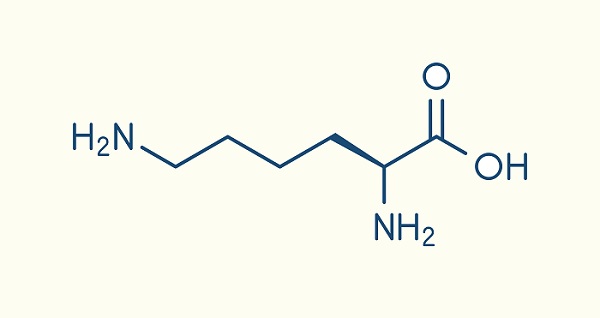
Methionine
Methionine is found in meat, dairy, and whole-grain foods and is, therefore, not necessarily required in supplement form. The improper conversion of methionine can lead to atherosclerosis as this essential amino acid plays a role in lipid and fatty acid biosynthesis. Methionine is one of two amino acids that contain the element sulfur – the other is cysteine. Sulfur plays an important role in the synthesis of anti-oxidants. Methionine supplements either in dietary or powder form are beneficial for women and men suffering from estrogen dominance or people suffering from liver disease. However, recent studies into the positive effects of low methionine diets to improve cancer outcomes and cell longevity may throw a spanner in the methionine supplement works. Vegans and vegetarians need not worry as their diet is naturally low in this essential amino acid.
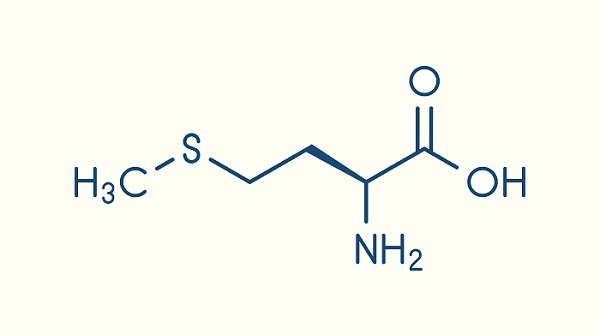
Phenylalanine
Phenylalanine is a precursor of tyrosine, adrenaline, and noradrenaline, the latter of which increases mental alertness and memory, improves mood, and suppresses appetite. Phenylketonuria refers to the lack of an enzyme that allows the body to use phenylalanine. This inability to utilize phenylalanine causes high levels of this amino acid to circulate in the body and no way to use it. The result is severe, irreversible mental retardation if this disorder is left untreated after the first three weeks of life.
Threonine
Threonine works together with aspartic acid and methionine to promote fat metabolism in the liver and avoid fatty liver (steatosis). In the CT image below, a healthy liver is shown above and under it a scan of a fatty liver. This essential amino acid is also integral to nervous system health and supplements are often taken by multiple sclerosis and Lou Gehrig’s disease patients. Threonine is necessary for the synthesis of glycine and serine and so assists in collagen, elastin, and muscle tissue production. More recent research is looking into its use as a colitis therapy.
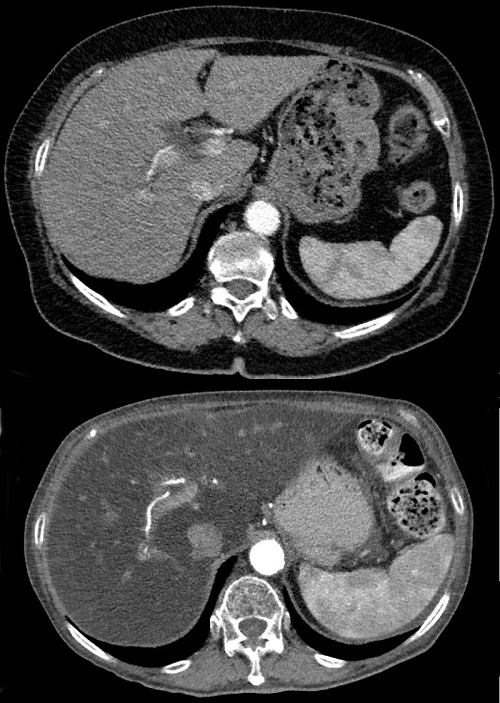
Tryptophan
Tryptophan is one of the most recognized of amino acid supplements and a mainstay ingredient in health store supplements that improve energy levels and mood. The reason tryptophan has become so popular in this area of the health industry is due to its role as a precursor to serotonin; it is also precursor to melatonin, enzymes and structural proteins and low levels are perhaps partially responsible for the occurrence of migraine. With recent studies looking into the role of gut-produced serotonin and the blood-brain barrier, tryptophan’s role is judged to be a very significant one. It is currently used to successfully treat menopausal depressive conditions, calm children diagnosed with ADHD, reduce anxiety, and alleviate the symptoms of restless leg syndrome.
Valine
Valine, leucine, and isoleucine form a group of branched-chain amino acids (BCAAs) that show a different structure than other amino acid types and are often sold as a group package in the dietary supplement industry. It is one of the essential amino acids most easily available to vegans and vegetarians and found in sufficient quantities in green, leafy vegetables and kidney beans. Valine plays multiple positive roles within the human body. Its effect upon the nervous system calms during moments of stress and improves sleep quality. Cognitive function may also be improved. Valine aids in all types of muscle tissue recovery, repair and growth and is therefore often used by endurance athletes. Shown to decrease the appetite, it is also an ingredient in many weight loss supplements.
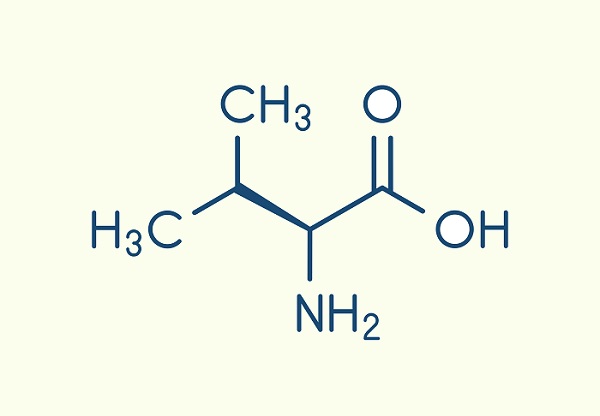
Non Essential Amino Acids
12 nonessential amino acids are produced within the body, although many believe in providing further sources by way of amino acid supplements or high-protein diets. Humans are able to synthesize alanine, arginine, asparagine, aspartate, cysteine, glutamate, glutamine, glycine, proline, serine, taurine, and tyrosine. Inborn deficiencies of non essential amino acids and their catalyzing enzymes may cause abnormal phenotypes caused by a genetic inability to form certain proteins. This can be seen in low or nonexistent arginine and glycine amidinotransferase production that leads to mental retardation and muscular abnormalities. A lack of glutathione synthetase, even in the presence of plentiful non essential amino acids, causes sufferers to exhibit signs of oxidative stress, progressive neurologic disorders, hemolytic anemia, and metabolic acidosis.
Conditional Amino Acids
Six amino acids are conditionally essential in the human diet. This means that under certain conditions, the human body’s ability to produce them is limited. This does not concern genetic disorders or disease but natural, temporary physiological states such as in babies born preterm or extreme stress conditions with associated physiology. The six conditional amino acids are arginine, cysteine, glycine, glutamine, proline, and tyrosine. Arginine is on occasion included in essential amino acid lists, as preterm babies are unable to synthesize it.
